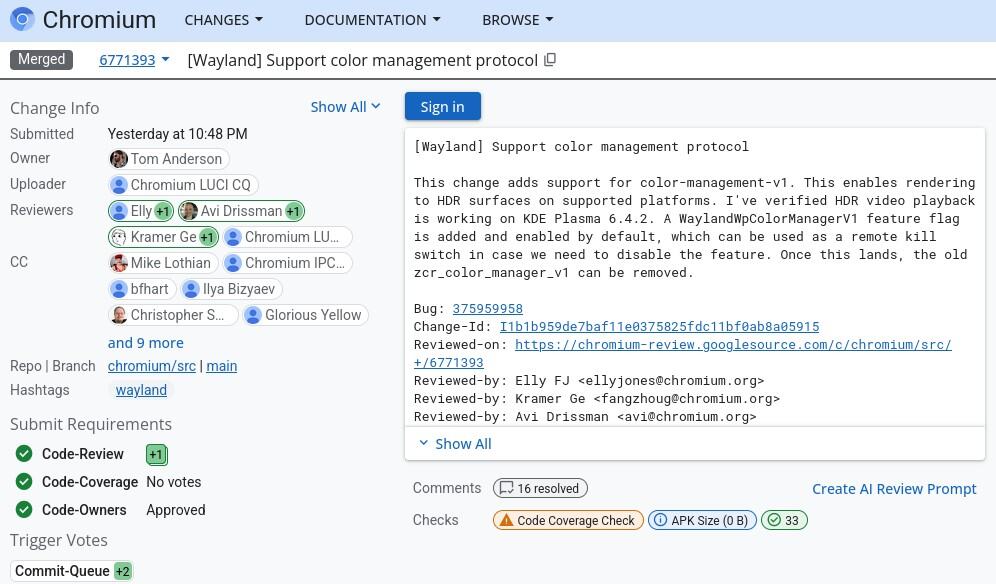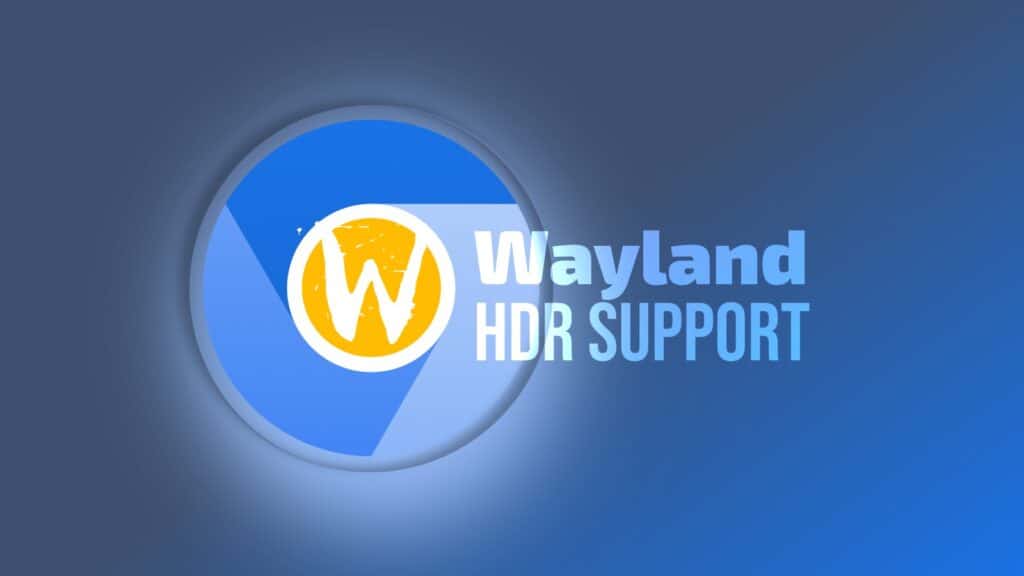About a month ago, we informed you that a PR had been opened to add HDR video playback support to Chromium on Wayland. And now, it has officially made its way, having been recently merged, which brings support for the Wayland color-management-v1 protocol on Linux.
The patch enables Chromium to pass HDR metadata directly to the Wayland compositor, which then handles tone mapping to match the display’s capabilities. In earlier builds, the browser relied on more basic color handling that often fell short when showing HDR content.
But now, with proper protocol support in place, users finally get smoother, more vibrant HDR video playback on compatible setups – think desktop environments like KDE Plasma and GNOME.

For NVIDIA Linux users, though, things are a little more complicated. Let me explain. Chromium can use VA-API for hardware-accelerated decoding, which on Intel and AMD GPUs works fairly well.
But NVIDIA’s proprietary driver doesn’t expose full VA-API support. Instead, NVIDIA provides NVDEC, which is its own hardware decoding API. Since Chromium doesn’t natively integrate with NVDEC, NVIDIA users rely on translation layers (like libva-vdpau-driver or nvidia-vaapi-driver) to bridge NVDEC into VA-API, which aren’t always reliable, especially under Wayland.
So, in short, for the NVIDIA Linux users, that means the situation is still mixed, and smooth playback isn’t guaranteed. As I said, AMD and Intel GPUs tend to fare better here thanks to their closer integration with VA-API, which Chromium can use.
But even with those challenges, the merged HDR patch is a win. It marks the first time Linux users on Wayland can expect proper HDR playback in Chromium, a browser that’s especially popular with open-source supporters, bringing it closer in line with what users already expect on Windows and macOS.
